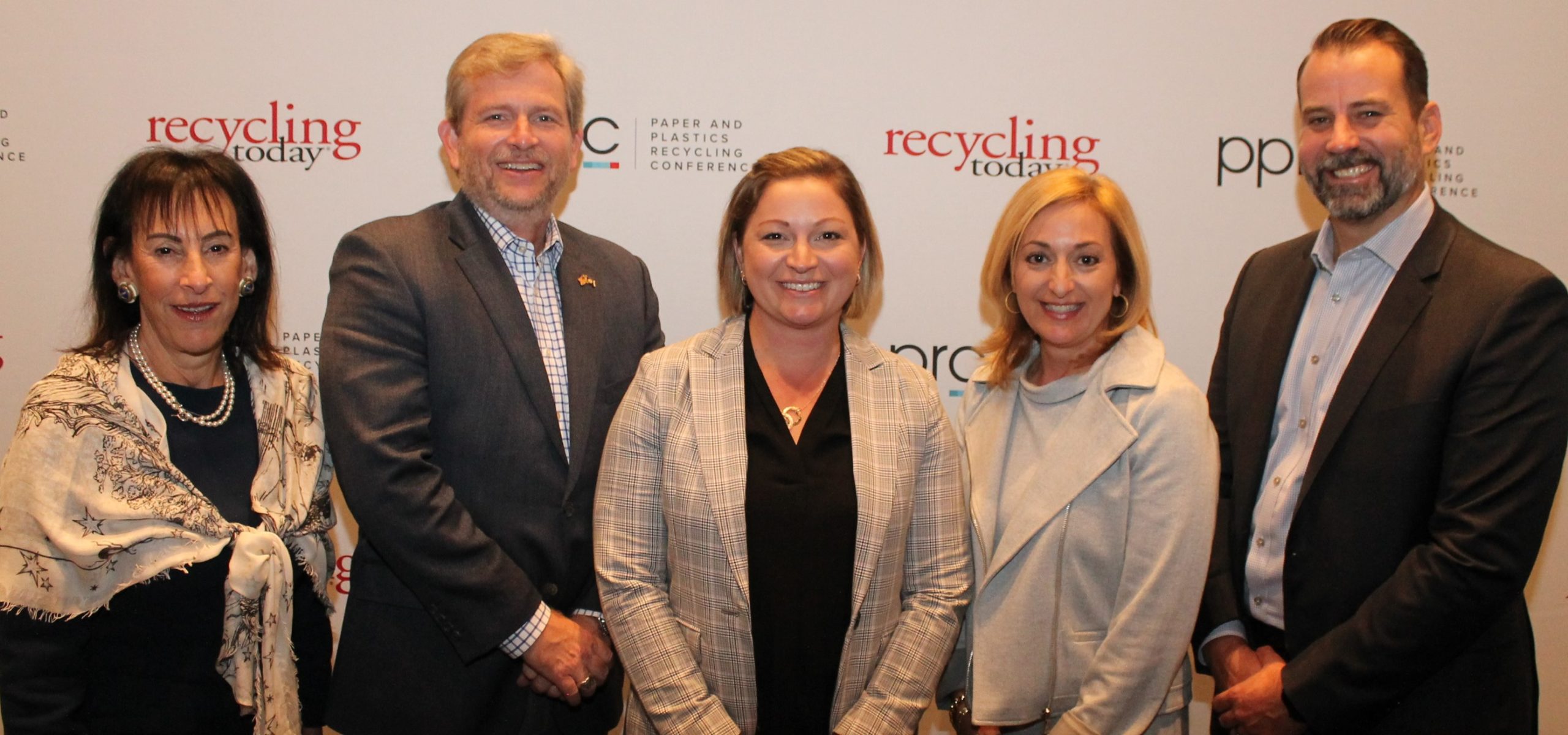As part of the ISRI Paper Stock Industries (PSI) Chapter’s contributions Oct. 19 and 20 at the Paper and Plastics Recycling Conference in Chicago, PSI Past President Nini Krever of Wilmington Paper Corp. moderated the “Moving Materials Revisited” panel discussion. The talk featured Karyn Booth of Thompson Hine LLP, Gregory Edwards of Virginia International Terminals, Matt Schrap of the Harbor Trucking Association, and Krissy van Niekerk of logistics giant Maersk.
The discussion included the recently passed Ocean Shipping Reform Act; the ongoing digitization of freight data; rail- and freight-service problems; port congestion; and other topics.
“There has been a lot of pain for importers and exporters,” Booth states, and recyclers have particularly felt pain about steep—and, in their view, unfair—demurrage and detention charges. “While demurrage and detention is legally recognized in the law to spur efficiency in the system, the charges must be imposed fairly,” Booth says.
Those charges are just one example of the inefficiencies of the freight market. According to Schrap, “There’s so much inefficiency built into the system, and the shippers being charged for that inefficiency.” In particular, the freight and port industry “suffers greatly from the lack of data integration,” Edwards says. The industry is working to improve that situation, “trying to all talk from the same sheet of music,” he says—but it isn’t there yet.
Adding a freight company’s perspective, Van Niekerk says, “We’re not trying to overly penalize our customers, but we must work within the constraints of the data system.”
Congress passed the Ocean Shipping Reform Act in June to fix key problems in the ocean freight market. Booth encouraged recyclers to “get familiar with the new remedies available to you [in the law], especially regarding demurrage and detention. Get smart about this because it’s here to give you more tools.”
Van Niekerk says the ocean freight market is seeing a decline in imports, which is allowing freight lines to clear congestion at U.S. ports, clean house, and focus on serving their current book of business. On-time vessel performance—which dipped significantly during the COVID-19 pandemic—is improving, Edwards says.
Going forward, Van Niekerk encouraged recyclers to take advantage of online data tools available from freight lines like Maersk, which give customers information at their fingertips, improve communication, and enhance efficiency in the market. “Let’s work together to make the business more consistent,” she says.
Turning to the rail market: Rail service, rail rates, and rail competition are among the issues under consideration at the Surface Transportation Board. The threat of a possible rail-worker strike is also hanging over the market. “Either a deal gets made, Congress steps in, or the union may wait until after the election and Thanksgiving to strike,” Booth notes.










